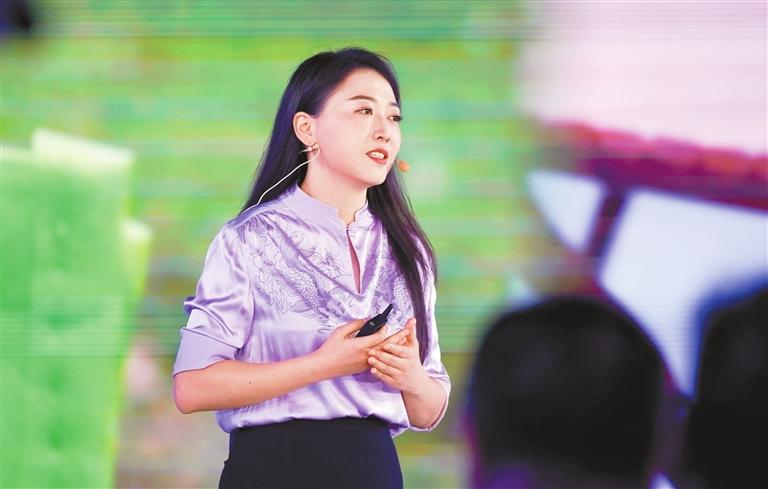
Han Ximin 1824295095@qq.com WORLD-RENOWNED structural biologist Yan Nieng, a year after her official announcement to quit her teaching job at Princeton University and join in the establishment of the Shenzhen Medical Academy of Research and Translation (SMART), is once again in the spotlight. This time, she has realized her dream of becoming the moderator of the fourth Shenzhen Global Innovation Forum of Talents, as well as sharing her experiences in SMART. Themed “Imagine•Innovate•Create Turn Aspiration into Reality,” the forum was held at the Shenzhen Convention and Exhibition Center in Futian District yesterday, marking the seventh Shenzhen Talent Day and attracting 230 participants on site. The event invited eight keynote speakers — five prestigious scientists and scholars, a young local entrepreneur, and two gold prize winners at the 2022 World Skills Competition — to share their insights on innovation, talent cultivation, and entrepreneurship. “Within a year, I have achieved a lot. Last year, I was a returnee just curious observing this city. Now, I call Shenzhen home. I’m here to make more dreams come true. SMART has progressed significantly with the participation of global talents. We will develop into an influential biotech and biomedicine institute,” Yan said. From a brain child a year ago, SMART aims to have teams of 200 researchers in 10 years, who will specialize in eight health-related fields — infectious diseases, neuroimmunology, mental health and cognitive sciences, rare and difficult diseases, reproductive development and aging, biological interactions, pharmacology and pharmacy, and systems medicine, according to Yan. Zhu Jiankang, dean of the Institute of Advanced Biotechnology of SUSTech and a member of the U.S. National Academy of Sciences, explained the significant advantages of using plants for genetic experiments, and introduced his own research on plants, fruits, and crops using genetic screening and gene-editing technologies. Zhu, who started working at SUSTech in January last year, has developed anti-aging technologies and tools via gene editing and modification widely applied in over 100 species such as rice, soybeans, tomatoes and corn during testing. “Our team has been cooperating with dozens of farming bases for tests around the country. We want to translate frontier anti-aging research into practical and useful applications that benefit the humanity, ” Zhu said. German professor Franz Raps, dean of the College of Urban Transportation and Logistics, Shenzhen Technology University (SZTU), sees innovation as implementing new ideas to create values and business models for customers, contribute to a country’s GDP, and solve the wealth gap. (Continued on P3) | 
